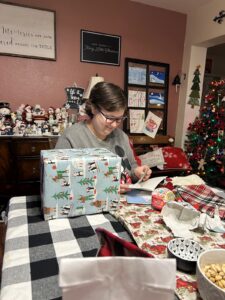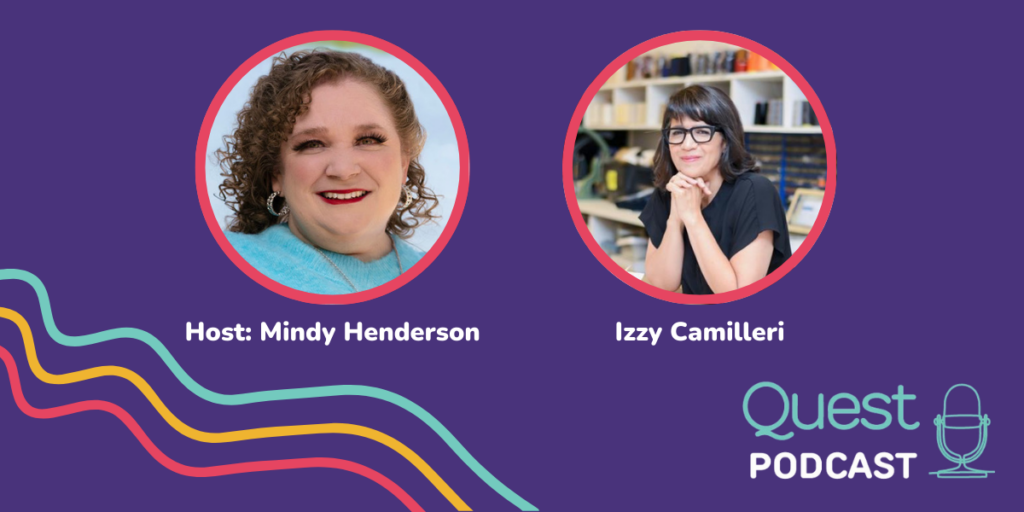
Ambassador Guest Blog: Prioritizing Mental Health to Beat the Winter Blues
By Ally Pack-Adair | Wednesday, November 20, 2024
5 Second Summary
MDA Ambassadors play an essential role in furthering MDA’s mission while representing and empowering the neuromuscular disease community. Quest Ambassador Guest Blog series provides a platform to share their personal stories, perspectives, and experience.
Ally Pack-Adair is 21 years old. She lives in Arizona and was diagnosed with a mitochondrial disease when she was a few weeks old. Ally enjoys arts and crafts, reading, LEGOs, and listening to music.
Across the United States, winter means different things to everyone. For some, it can mean heavy blizzards and long days indoors. For others, specifically those in warmer climates, it can mean mild, cooler temperatures and a chance to spend more time outdoors. I live in the western part of Arizona, which is typically a warmer climate and a place that the general public might not think individuals experience the “winter blues” in. Our days also get shorter, which can influence mental health, but I have found that my mental health is most influenced in the winter by stressors more than the weather. Throughout my 20 years of life, I have had many mental health struggles and have learned coping skills along the way.
General tips to boost your mental health

Ally opens cards and gift during the holiday season.
Mental health has to do with an individual’s general well-being. It contributes to how someone is able to function in society, the ways they think, and how they behave. This can affect decision-making, social relationships, performance at work at school, physical health, and more. One key aspect about well-being is a concept known as emotional resilience- which is the adaptation and coping to unexpected stressful situations. There are many factors that may impact mental health, including biological factors, socioeconomic status, lived experiences, support from others, and lifestyle. An individual’s mental health can vary from day-to-day due to internal and external factors, and they may need tools to help maintain and remain in a regulated state. Developing coping skills can lead to improved emotional regulation, decreased stress, long-term well-being, and more.
When needing to deal with challenges and stressful situations that appear in my life, I turn to coping skills. These often give a chance for emotional regulation and resilience.
Here are some of my favorite mental health tips to use year-round:
- Staying connected to others to avoid social isolation in the most currently accessible way, including in-person visits, texting, phone calls, or video calls.
- Keeping a daily (or weekly) gratitude journal to help focus on positive things occurring in life.
- Create a calming environment in your main living area by filling it with your favorite colors, soft lighting, controlled temperatures, access to music or background noise, decorations you enjoy, and more.
- Prioritize enjoyment in life by engaging in accessible hobbies that may also double as distraction techniques including watching a favorite movie or TV show, reading a book/audiobook, participating in visual arts activities, and more.
- Address physical pain by engaging in activities that may also double as self-care and relaxation activities including aromatherapy, taking a shower or bath, massage therapy with lotions, and gentle adaptive yoga.
Overcoming holiday season and winter blues
Having a life-threatening illness causes me to miss out on experiences that my healthy peers are able to participate in, especially around the holidays, which makes focusing on my mental health even more important.

Ally enjoys participating in holiday experiences.
For me, I think negative thoughts or feelings of isolation hit a little harder around the holidays, as winter marks the passing of the New Year (and time passing in general) and access to activities and socializing sometimes have more barriers. There are activities that happen in the wintertime that do not happen year-round and, depending on how my health is that year, I may not be able to participate in those activities the way I had been able to in the past. Additionally, there are activities that are inaccessible for my physical mobility and temperature sensitivity. The fear of missing out and the depression that can comes along with that can be very hard to deal with for those with physical disabilities and health concerns. For example, some traditional activities that I am not always able to participate in or have to adjust the way that I participate are traveling to northern Arizona to see snow, engaging in winter sports, attending certain festivals, and attending large New Year’s Eve celebrations.
It can be hard to cope with the “winter blues” regardless of where you live. My personal strategies for managing my mental health and negative emotions in the winter, that expand throughout the year, have grown as I have grown. The strategy that I personally find the most helpful is planning ahead for major holidays, as these can be stressful. I like to make sure I have relaxation time built in when family comes to visit, foods that I am able to eat, and activities that I am able to participate in. My favorite strategies for relaxing are engaging in some of my favorite hobbies (like reading), grounding exercises, calming music, and simple art activities. Specifically with winter, I try to practice gratitude for the experiences I have had throughout the year. This helps me to reflect on the positive things that I have in my life and to combat negative feelings to the best of my ability. Lastly, I like to decorate the space around me to represent winter. I spend the majority of my time in my bedroom depending on my physical health and physical ability at the time. Having festive decorations and seasonal touches in my personal space helps me to embrace the season.
Next Steps and Useful Resources
- Browse MDA’s Mental Health Hub.
- MDA’s Resource Center provides support, guidance, and resources for patients and families. Contact the MDA Resource Center at 1-833-ASK-MDA1 or ResourceCenter@mdausa.org
- Stay up-to-date on Quest content! Subscribe to Quest Magazine and Newsletter.
Disclaimer: No content on this site should ever be used as a substitute for direct medical advice from your doctor or other qualified clinician.




